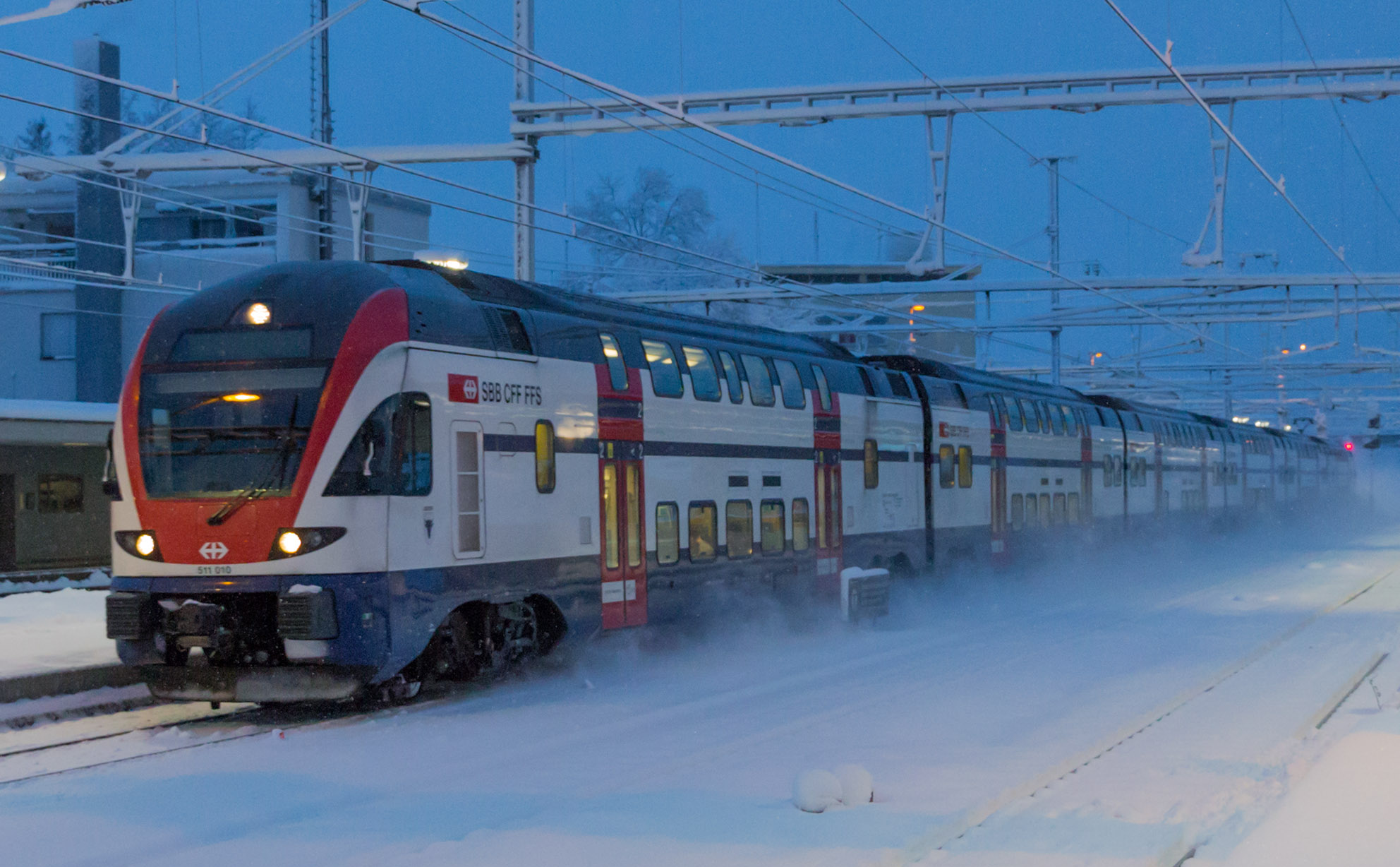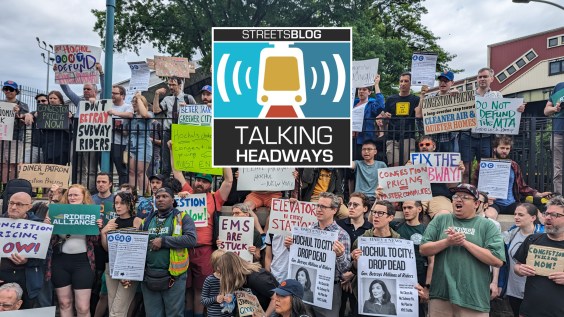Caltrain to Get More Cars for Coming Electrified Service:
The Peninsula's commuter railroad is busy putting up poles and stringing wire for its electrified service, due to be operational in 2022 (see photo below).
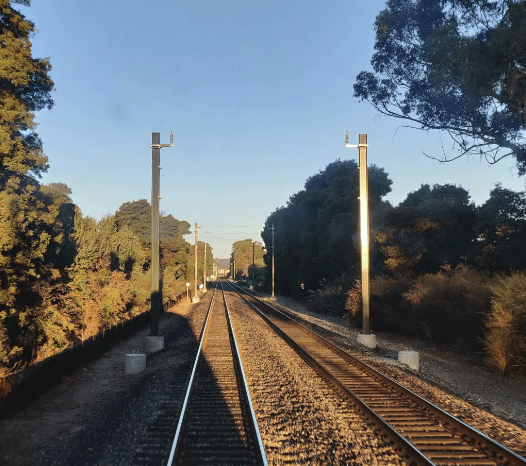
But those poles and wires won't mean much if they don't have enough electric trains to exploit it. That's why the agency has announced it is purchasing additional rolling stock for its electric fleet.
From a Caltrain statement:
Funding from the California State Transportation Agency’s (CalSTA’s) Transit and Intercity Rail Capital Program (TIRCP) allows Caltrain to expand its electric fleet from 16 six-car trainsets to 19 seven-car trainsets. Caltrain’s contract option with Stadler, the company building the electric cars, allows for additional Electric Multiple Units (EMUs) to be purchased at the original price totaling $174.6 million, provided the purchase is made by the end of 2018.
The Caltrain Business Plan sees weekday ridership going up to over 240,000 per day by 2040, up from the current weekday ridership of 65,000. The additional cars are supposed to help meet that demand. In addition, some of the money will go to on-board WiFi and better bicycle facilities. What remains an open question is the configuration of the bike cars. "The interior configuration of the trains will be informed by a public process in 2019," writes Caltrain's communications staff. "That discussion will include an assessment of design alternatives to address bike security concerns and an exploration of policy considerations related to onboard and wayside bicycle storage, and how to balance the needs of bicyclists against the need for capacity improvements for all riders."
BART Tests Mobile Ticketing with Airport App:
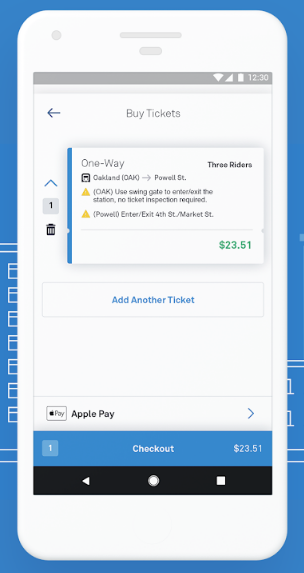
The future of transit ticketing is, well, ticket-less. BART has announced a pilot program to try out charging fares using a mobile app. First step--an app and program that offers discounts for using BART for getting to the airport.
From the BART release:
The BART to Airport app is fast, secure, and convenient. Riders just download the free app, register a debit card, credit card, Apple Pay, Google Pay or PayPal account into the account, then purchase a ticket. When they are ready to take BART, they activate the ticket and show it to a Station Agent as they enter and exit stations. The app calculates the discounted fare for you and the one mobile ticket is all you need for the entire group.
"With the BART to Airport app, group travelers won’t have to worry about finding and paying for expensive parking at crowded airport lots or sifting through the chaotic curbside pick-ups and drop-offs at airport terminals,” said BART Board President Robert Raburn in a prepared statement. “We want to test how mobile ticketing could work at BART while also making group travel on transit more affordable.”
The app allows groups of two or more people to get a 25 percent discount, if they buy the airport fares together. That's a common way for rail and transit services to remain competitive against TNCs and conventional taxis that don't charge on a per-rider basis. With this app, BART is joining Muni, Caltrain, SMART, VTA and ?others? in the app-based, ticketless realm. Try the BART app yourself at Apple App Store or Google Play Store.
Now, if only the agencies could figure out how to rationalize fare structures across agencies.
San Francisco Transit Riders Celebrate and Reflect on Year's Advocacy
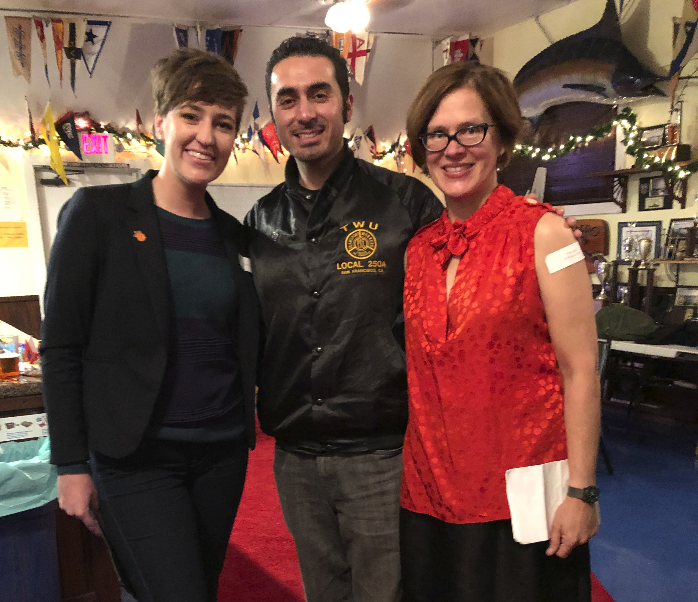
The group that helped bring you all door-boarding and the 22-day Muni challenge vowed to get red-carpet, transit-only lanes rolled out throughout San Francisco, at its annual holiday party last night (see the above pic, with SFTR advocates standing on the red carpet). The party was an opportunity to "celebrate a year of successes--getting the rider's voice heard, influencing transit projects, and shining the media spotlight on public transit's strengths and weaknesses," wrote the Transit Riders in a statement about the event.
"Our successes of the past year include getting the Excelsior Safety Project back on track, keeping the 27 Bryant improvements moving forward, and of course getting the two-hour transfer!" said Hyden. She also laid out the group's vision for the next phase: a rider’s rapid network. "We want to tie together every district in the city with a network of rapid lines, so riders can get from one end of the line to the other in 30 minutes or less, by the year 2030."
They held the party at their usual haunt, The Mariposa Hunters Point Yacht Club in Mission Bay. A hearty congrats to one of the fastest growing advocacy groups on another year of hard-won progress.
